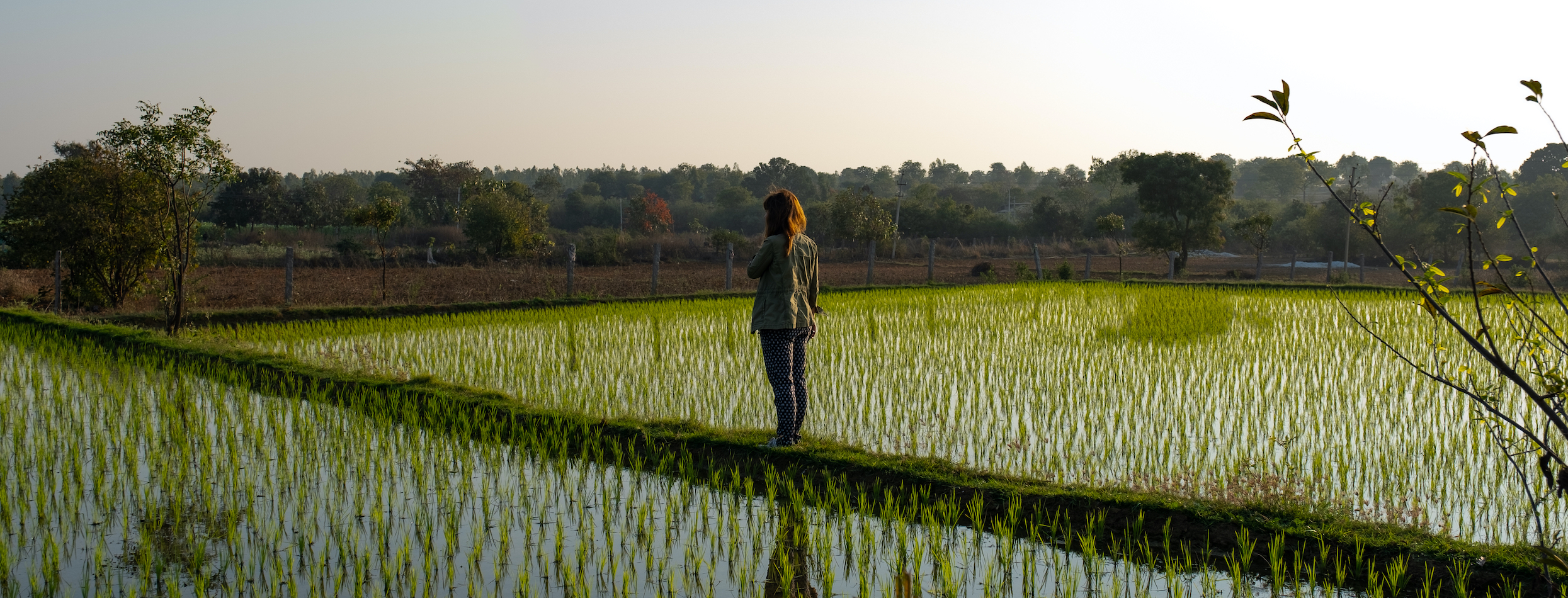Leadership
Nature as our greatest teacher - UK Fellow story
UK Acumen Fellow John Harrison, founder of Solidarity Farm, shares his journey from discomfort within a wider system to taking a courageous leap into the unknown.
January 27, 2025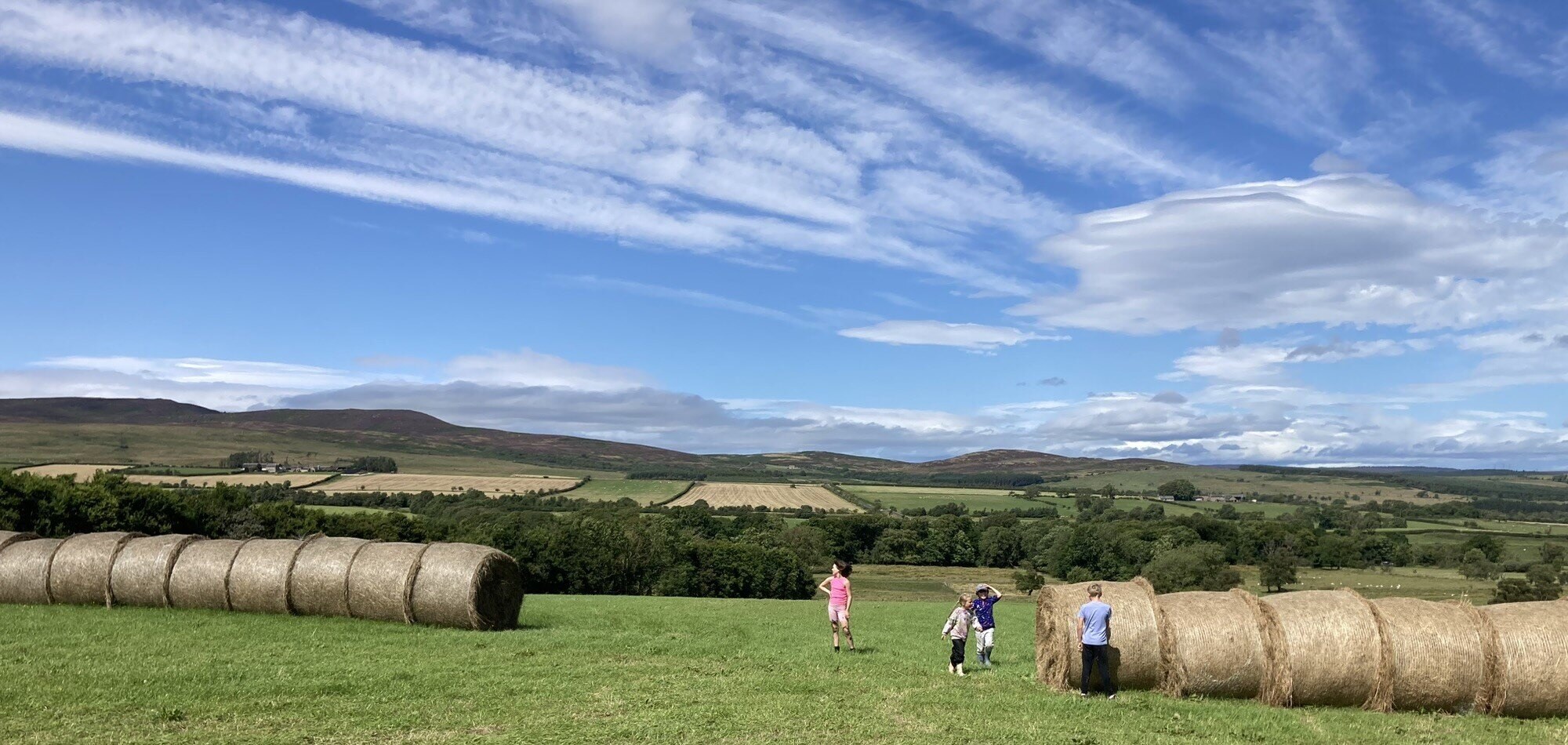
Our Reimagining Leadership series spotlights United Kingdom Acumen Fellows who are building solutions that solve problems of poverty and create a world based on dignity. By sharing these stories, our hope is that we can reimagine existing systems and role model a new definition of success.
John Harrison participated in the UK’s inaugural Acumen Fellowship in 2020. Through a journey of reflection and introspection, John was struck with the realization that he was constrained and beholden to the system in which he operated, and needed to make changes. Once this seed was planted, as he continued the Fellowship, he felt a deep sense of liberation; a call to action for a new purpose.
This intense period of learning drew John towards change - pulling him in a deeply uncomfortable direction - and returning him back to a place he had been running from for over a decade. He entered the Fellowship with a hope to build skills around authentic leadership and left with a renewed sense of motivation to start his own social enterprise, Solidarity Farm, which utilizes nature and farming as a vehicle to support children struggling to integrate into mainstream education. John shares his story with us here.
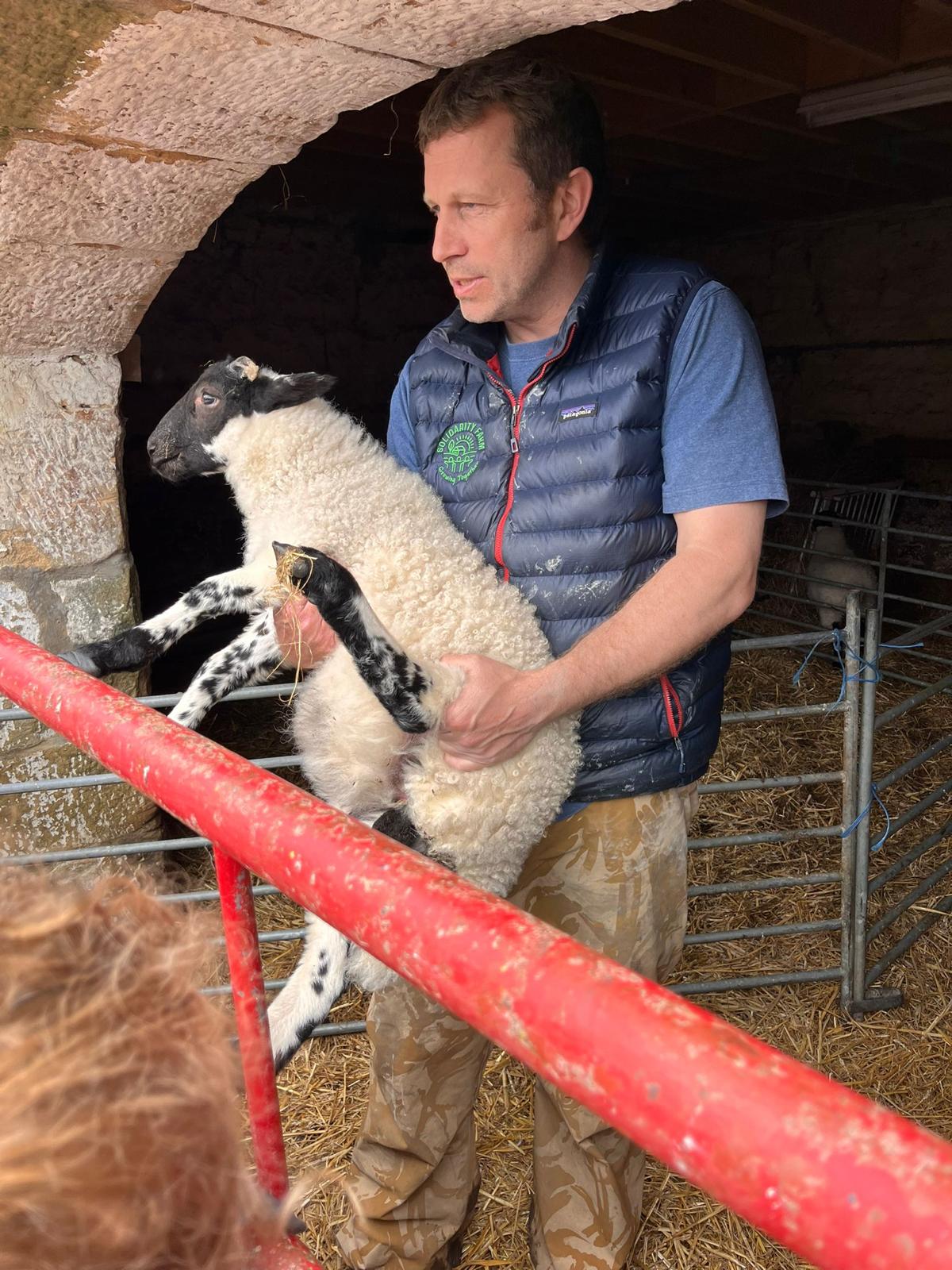
What encouraged you to apply to join the inaugural UK Acumen Fellowship?
I had not heard of Acumen before applying to the UK Fellowship, but I felt drawn to the curriculum, especially the focus on understanding positioning within systems and gaining a greater understanding of self and how this fitted with authentic leadership. It was when I attended the selection festival (as a finalist) that I really started to get inspired by the programme and see that, if I committed, it could be transformative. I also found the prospect of being part of an international community exciting - to gain a greater understanding of how we could amplify impact at scale by building strength through diversity.
What were you hopeful to get/give as part of joining the cohort?
I was hoping to be stretched and to interrupt some of my learnt patterns of behavior, to allow growth not only as a leader but as a human being. The idea of discernment has always been of interest to me, having been educated by the Jesuits, and the idea that the purpose of a good life is to become your true self has always appealed to me.
When joining the UK Fellowship as the CEO of an organization, you felt beholden to a system - can you tell us more about how that showed up for you?
Power remained in the hands of the executive and board level, with decision-making being very top-down. I felt I was complicit in this system and faced my own challenges with liberating control and, to some degree, this led to my own regression into the comfort of hierarchical structures with clearly defined roles. I attempted to “treat” all equally, but I did not ”see” all equally and the need for validation from those in positions of power was deeply unsettling. I then tried to explore these emotions further, becoming interested in the writing of Paulo Freire and others who challenge this dynamic which led to a greater awareness of my positioning and how certain knowledge and ideas become prioritized with solutions coming from top-down.
And this moment of liberation that came during the Fellows Programme, what do you think was the catalyst for this?
I think a few things happened, but one stand out was during a life story/mapping exercise where another Fellow shared and talked about how one’s greatest weakness is actually a strength. This statement made me see that anxiety and trauma can be harnessed and can be an invitation to bring your whole self into the work. Previously I had identified areas of myself that likely needed to be fixed or buried, but I gradually started to feel more comfortable with myself and at the same time built a greater understanding of others. It takes a great deal of emotional toll to mask areas of yourself and I found it liberating to let go and be grateful for my whole self.
It’s one thing to take a leap of faith and start something completely new, but you also chose to go back to a very uncomfortable place in this process. We’d love to hear more about that journey.
In 2009 I had been working in farming for several years and, despite enjoying the connection to land and animals, I could feel myself sinking into anger and despair with a powerful desire to get away from my situation but also myself. This led to working overseas which gave me a sense of freedom and new possibilities. Eventually, I did return to the UK and started working for a homelessness charity, with no intention of returning to farming. However, I was then given the opportunity to undertake a Churchill Fellowship where I explored how farming and nature-based approaches could benefit those who are homeless or in recovery. This gave me an insight into the wider value of the food system and I started to look at farming through a different lens.
Following COVID-19 I could see that many young people struggled with education, and I decided to set up Solidarity Farm to create a sense of belonging and community in a space where previously I had felt like an outsider.
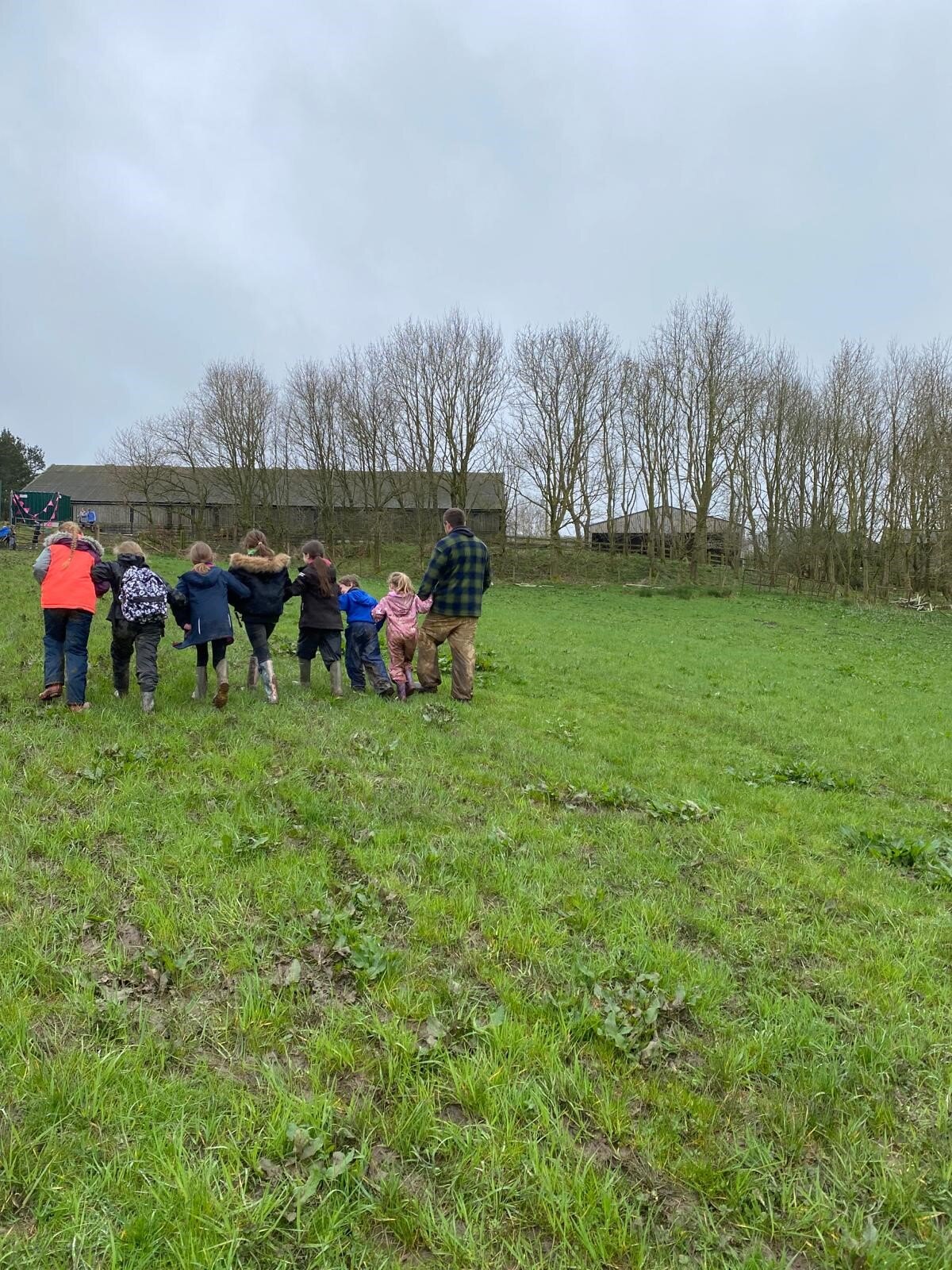
Our series is all about Reimagining Leadership - how do you feel your work challenges the status quo?
Our work is with those who struggle with mainstream education, and we support young people through our alternative learning program who may be categorized as having behavioral issues or learning difficulties. It goes back to trying to look deeper and understand hidden needs that could be as diverse as acceptance, belonging, and feeling valued. I called the organization Solidarity Farm because everything we do is done together - whether success or failure. It is a shared journey. Some young people we work with for a day, others weeks, months and maybe even years. While they are with us, I want them to be able to let go and glimpse the value of their true self, experience different realities and learn new skills. As they help us shape our offer, it is critical that they are given space to take the lead on how we best support them.
What would you like people to know about the issues you are addressing?
The young people that we work with may struggle with mainstream educational environments and the rigid structure in which they operate, but when they are accompanied and given the space to develop new skills they can excel and develop self-belief that can be carried through into adulthood. We have amazing resources in the form of smaller family farms that can play a transformational role in the lives of young people, but we need to harness this wider value of the food system. I think our current education system is not serving a cohort of young people and we need to listen deeply to what they need and why they are struggling to manage in the current system.
If you had a magic wand, what key things would help you amplify your impact?
I think a recognition of the value of alternative education approaches that harness nature and the food system, while also recognizing that humans all learn in different ways and require different environments. We are based on just one farm in rural Northumberland but would love to create opportunities for other farms to engage with young people who are struggling as we see an ever-increasing demand. This means being able to engage with policymakers and farmers to build the awareness of what is possible by looking at the food system and land resources through a different lens.
Author
Kate Allen
Kate is the Community Manager at UK Acumen Academy where she leads on the support strategy for the UK Foundry, a community of social innovators tackling poverty across the UK. This includes designing initiatives based on the needs of the Foundry and amplifying the inspiring work they do.
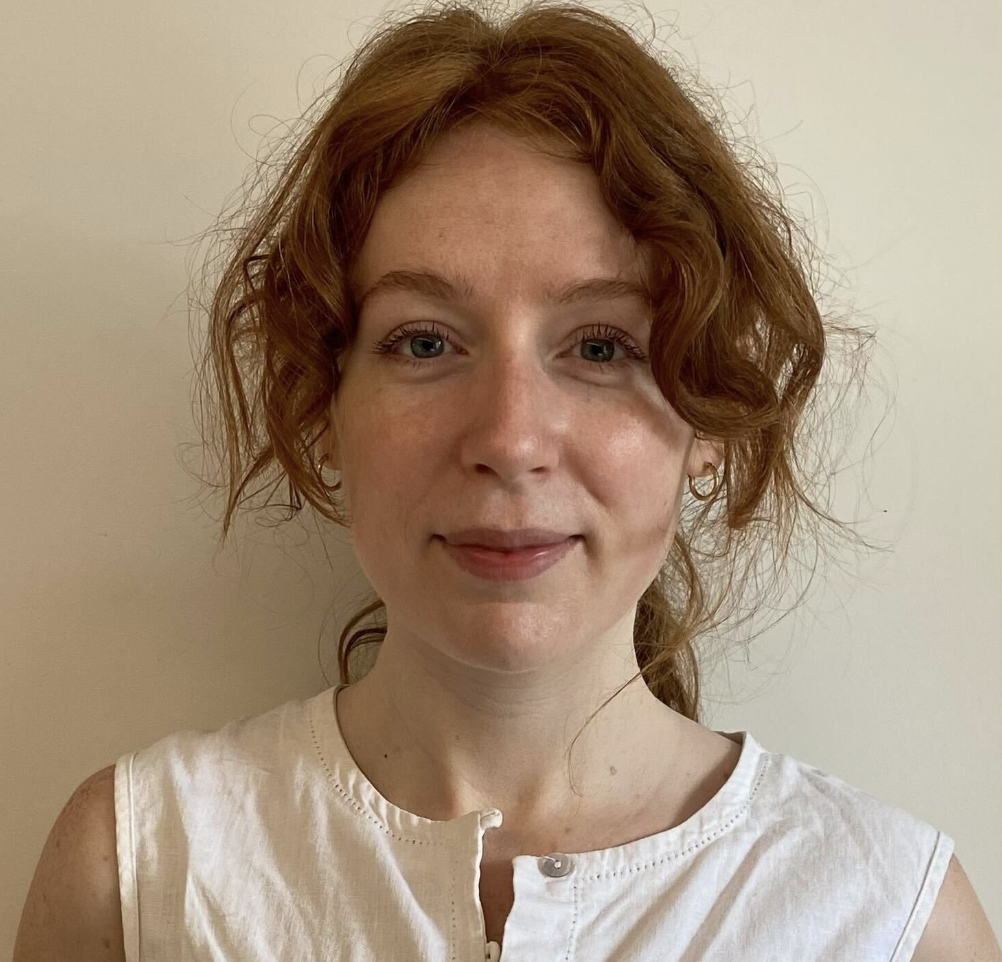
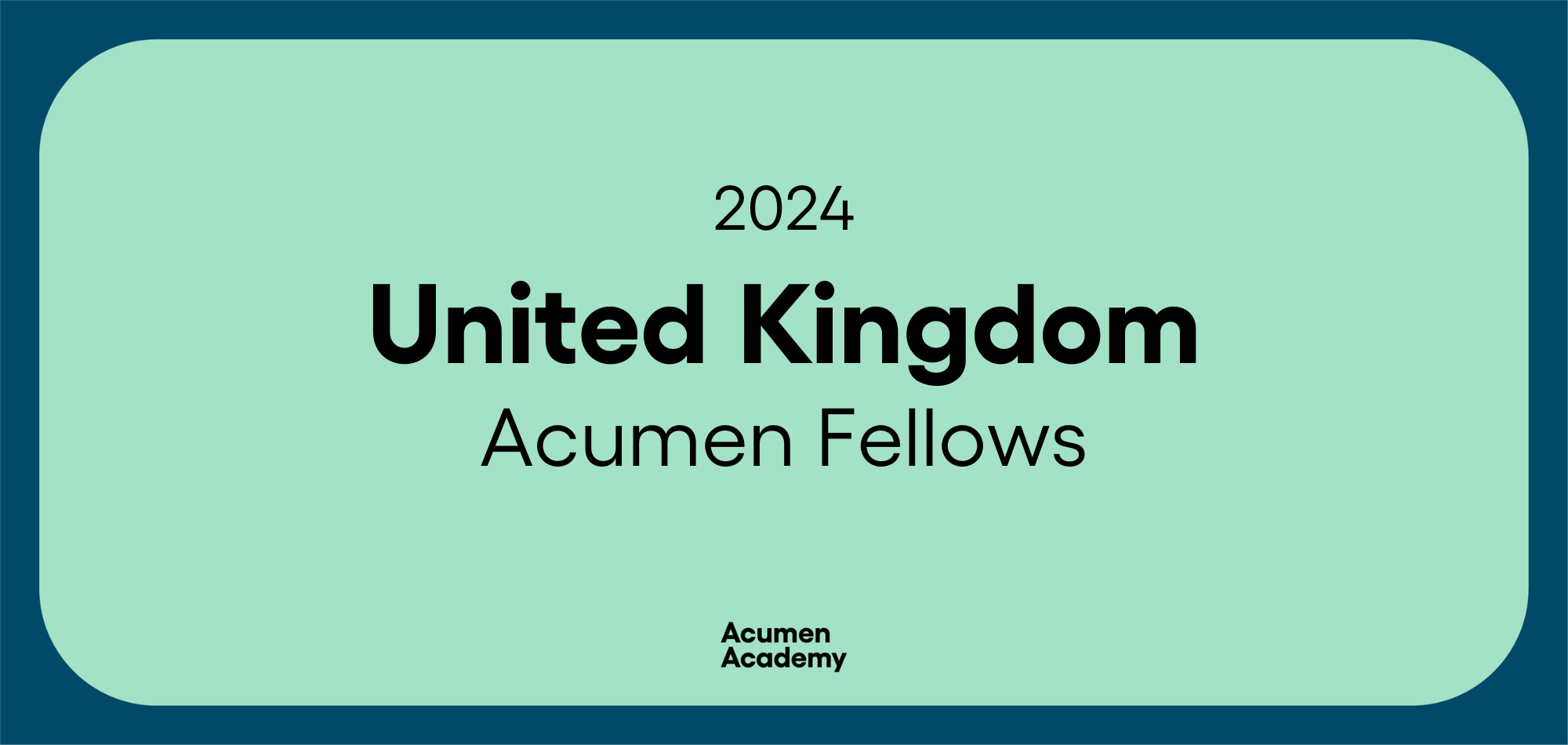
.png)
